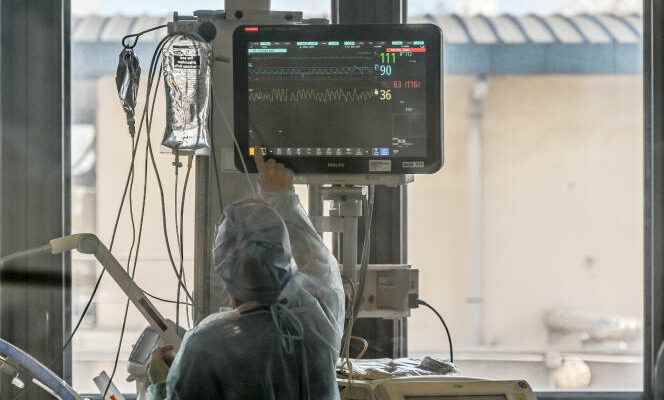At a time when the Head of State is launching a major debate on the end of life, the Constitutional Council will have to rule on the delicate question of the imperative nature of advance directives. The scenario pleaded in public hearing, Tuesday, October 25, on the occasion of a priority question of constitutionality (QPC), is completely new.
It concerns a man who had written advance directives in June 2020 stating that he wished to be kept alive. “even artificially”, if he were to be plunged into a prolonged coma deemed irreversible. In May, then aged 43, he was run over by the truck he was repairing. Victim of numerous fractures and cardiorespiratory arrest, he arrived in a coma at the intensive care unit of the Valenciennes hospital (North), with a vital prognosis.
In July, following in-depth examinations and consultation with resuscitators outside the team, in accordance with the collegial procedure provided for by the Claeys-Leonetti law of 2016, the hospital judges ” useless ” and even “disproportionate” the maintenance of acts and treatments having no other effect than to maintain life artificially, without any prospect of improvement. Continuing care would only allow a “quality of survival (…) catastrophic ». The law authorizes the suspension of processing “when they result from unreasonable obstinacy”.
The decision to stop treatment, in this case mechanical ventilation, and artificial nutrition and hydration, was taken on July 15. To override the patient’s wishes, which are clearly brought to the attention of the medical team, the hospital refers to article L. 1111-11 of the public health code, paragraph 3 of which provides that advance directives are binding on the doctor except when they “appear manifestly inappropriate or not consistent with the medical situation”.
Respect for the principle of “freedom of conscience”
The family’s appeal against this decision to stop treatment was rejected on July 22 by the urgent applications judge of the Lille administrative court, before being examined on appeal by the Council of State. On this occasion, a QPC was raised and sent to the Constitutional Council. The latter does not have to decide on the particular case of this unfortunate family, but on the conformity or not with the Constitution of the exception provided for in this article L. 1111-11.
According to family lawyer Ludwig Prigent, this section of the law which allows doctors to end a patient’s life against his will is unconstitutional. It violates the principles of safeguarding the dignity of the human person, as well as the freedom of conscience and personal freedom guaranteed by the Declaration of the Rights of Man and of the Citizen. Searching for elements in the parliamentary works on the Claeys-Leonetti law, the lawyer asserts that the legislator did not “never wanted to let the doctor override advance directives”. The exception to their enforceability would have been introduced only at the end of the debate on the bill in order to allow doctors, in the opposite scenario to that of the day, not to practice euthanasia which would have been desired. by a patient.
You have 49% of this article left to read. The following is for subscribers only.
